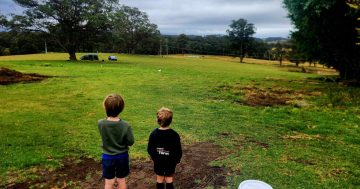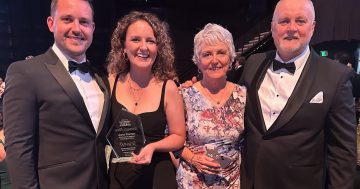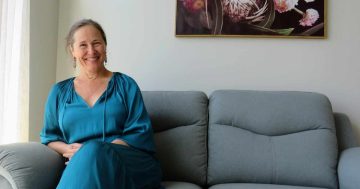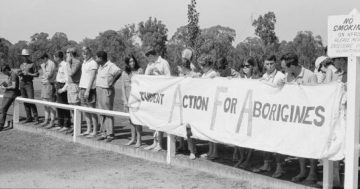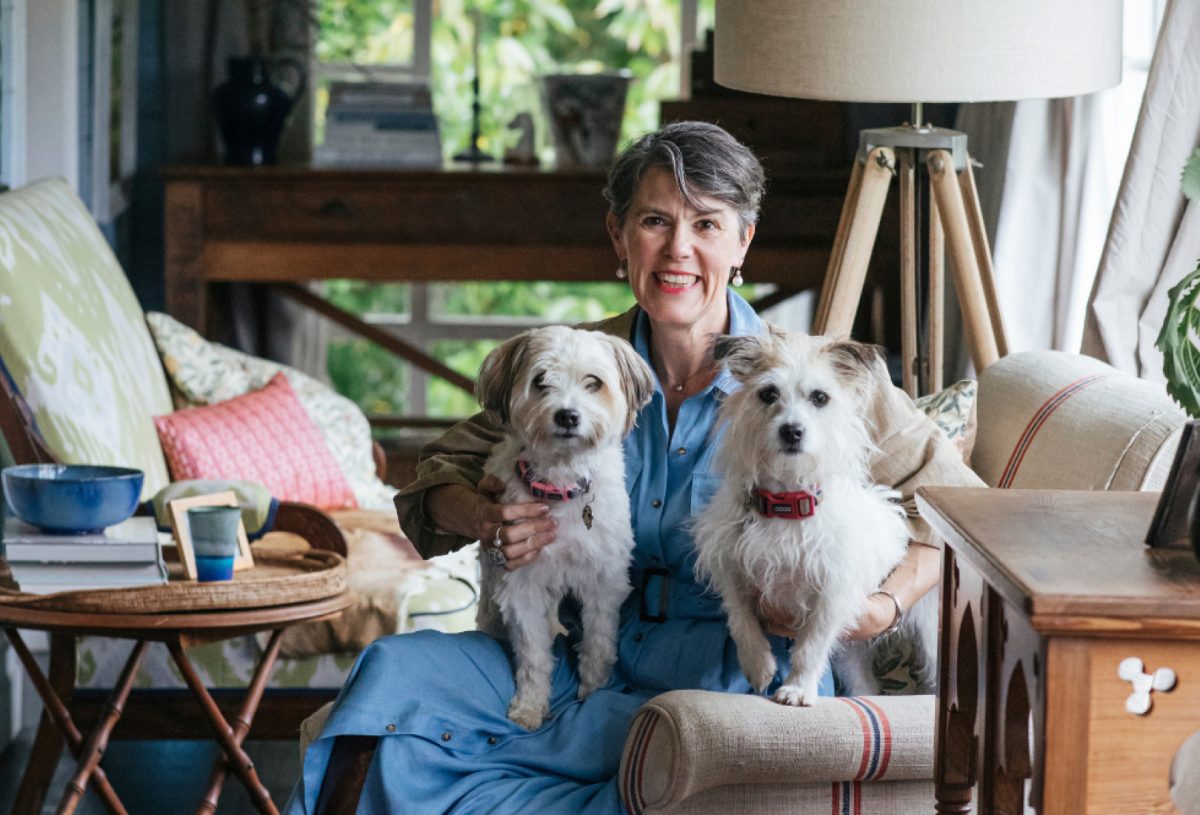
Jane Crowley of Dirty Janes, who will speak in Shellharbour in August. Photos: Supplied.
Bowral’s Dirty Janes Antique Centre founder Jane Crowley discovered her passion for antique dealing at age eight during one of her family’s many road trips to the South Coast.
Jane’s father and fellow antiques dealer Athol Salter started Junque Shop in Wagga Wagga in the 1960s, resulting in her childhood centring on endless visits to junkyards and antique shops.
Jane, who founded Dirty Janes in Bowral, Canberra and more recently Orange, has not only collected plenty of antiques with her father since that time, but also plenty of stories.
Those tales have made it into the book Beeswax and Tall Tales: Memories of an Aussie Antique Dealer (co-authored with her dad), which she will share during an “in-conversation” event at Shellharbour City Museum on 6 August.
Jane said the event would share entertaining stories from the book of her dad’s rummages through ramshackled huts to grand country properties, along with her own stories of her “sometimes quite chaotic childhood”.
“When your parents own a small business like an antique shop, life is never going to be straight down the line,” she said.
“It’s always going to be these wild car rides out to farm clearances and unloading trucks and loading trucks in the rain.
“I look back on it with such fond memories of how resourceful it made me as a person, because it’s all about that ‘make do and mend’ lifestyle many of us don’t have a chance to experience.”
She said that South Coast trip at age eight was her first experience as an antique dealer, having uncovered a desk she then restored herself and sold for a profit.
“It’s two hours from Canberra to Batemans Bay, but for us it was an eight-hour journey, because Athol would stop at every dealer and junk shed along the way,” she said.
“Every town had a junk shop, which was great. Not so much today.
“For me, that trip was a real turning point, because it was like, ‘Now I see why Dad goes off to work each day. He’s not just mucking about in the workshop. This is what he does.’”
She started the book 10 years ago to simply write down her father’s stories for her children to have.
“It’s to show them what he used to do, because he was one of the first dealers to fly to the UK and bring back containers of antiques,” she said.
“He would go to London, and along the Thames were all the old factory buildings that were occupied by junk dealers. There would be floor upon floor of furniture and secondhand stuff.
“I thought these stories tell a way of life that is no longer in existence. I really wanted to record some of it.
“Some of the adventures he’s had are just hilarious and you’re in stitches on the floor.”
She said it was a story about a dead pig during a clearance at an old farmhouse near Wagga Wagga that particularly stood out for her.
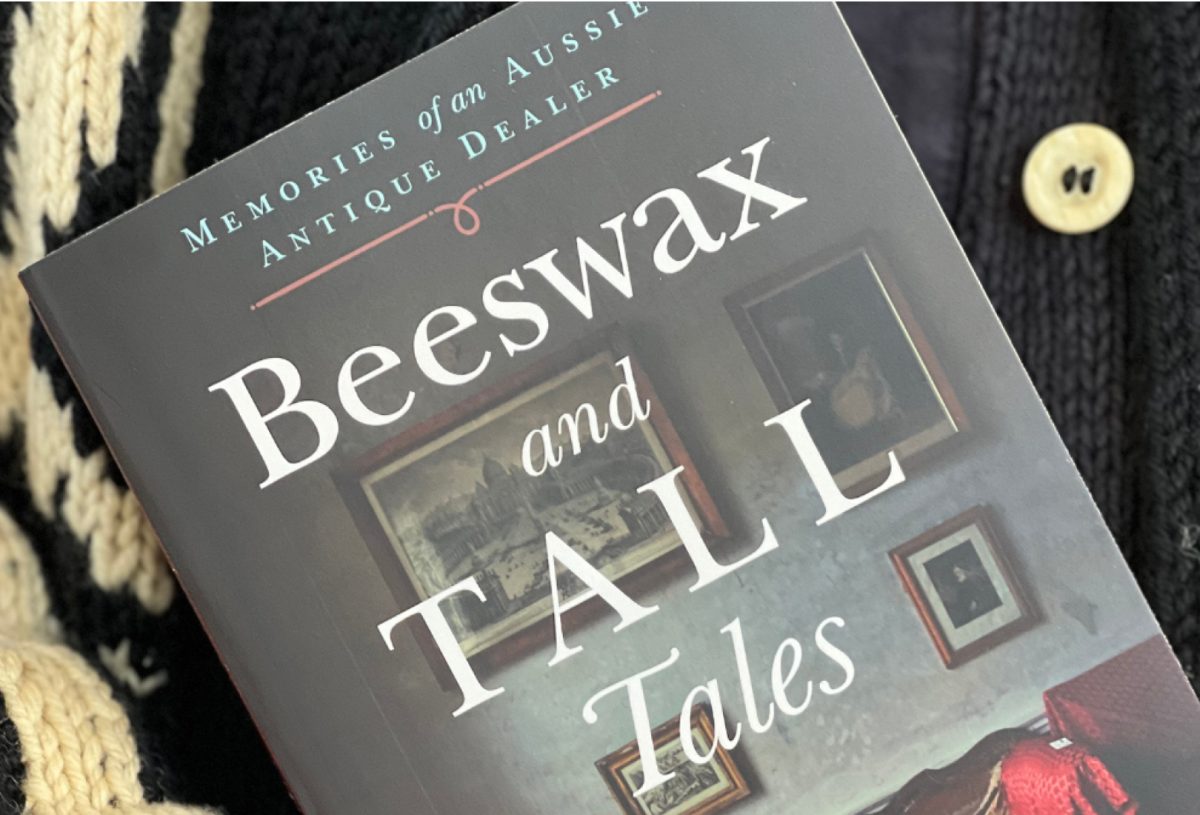
Beeswax and Tall Tales: Memories of an Aussie Antique Dealer.
“This smell just hits him like a lorry as he gets into the room,” she said.
“A wild pig had got into this old farmhouse and fallen through the rotten floorboards and died.
“In the same room is the most magnificent chest of drawers Athol’s ever seen.
“So it then becomes this quite difficult process of a getting the chest of drawers out without Athol himself falling through the floor and then, of course, the smell of the dead pig has impregnated the chest of drawers, so it’s trying to get the smell out of the timber.”
While the Illawarra doesn’t feature in the book, Jane has her own memories of a clearance at a renovated Illawarra farmhouse during COVID where she discovered an old school cupboard filled with garden sprays and fertilisers.
“They couldn’t quite understand why I was so excited about it, but I was like, ‘This is actually the best bit,’” she said.
“I think that’s what always amazes me, is that what I see value in and what others see value in isn’t necessarily what a person associates to be valuable.
“It really is that idea of one man’s trash is another man’s treasure.”
She said she saw that daily at her three stores, which operate a curated market concept featuring stallholders covering everything from French furniture to vintage clothing and art.
While trends come and go, she said a love for antiques had endured due to people’s desire for unique pieces that had longevity.
“During my childhood, antiques were very much French polished, so they were as shiny as, and anything that was good was locked away in a cabinet,” she said.
“When we started Dirty Janes, I really wanted vintage and antiques to be accessible.
“Whether you’ve got $5 in your pocket or $5000, you can buy something at Dirty Janes.
“I want people to learn to live with them and not feel they have to be locked away and only brought out on special occasions.”
She said over the past 10 years, this had emerged as a trend with high numbers of Gen Xers looking to vintage before buying new.
“It’s more affordable and also it harks back to their grandparents,” she said.
“It gives a lot of comfort when people have vintage items, because they’re beautifully made and they do hark back to that era where life was simpler.
“I also think there’s an environmental factor, because people say, ‘I don’t want to buy something that’s chipboard and then, after five or 10 years, it’s going to end up in landfill. I want to buy something I’m the custodian for’.
“I’ll look after it for the moment, and then once I’m finished with it, it’s got another chapter it’s going to live through, because it was so beautifully made to start with.
“With those mass-produced items, we’re sadly losing quality at a dramatic rate.”
She said passing down items to the next generation also meant passing on memories and stories.
“If we pass on these stories attached to items, it forms a real appreciation for what past generations had to go through.”
Book tickets for Jane Crowley’s in-conversation event on 6 August at 6 pm at Shellharbour City Museum with vintage items on display.












